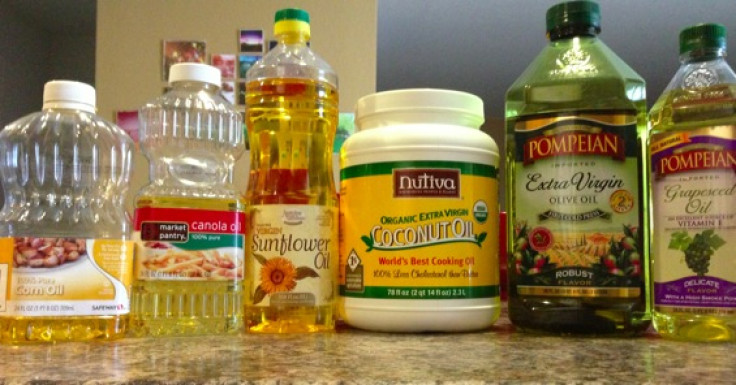Vegetable oils 'more effective' at protecting against heart disease and diabetes than olive oil

Vegetable oils could reduce the risk of heart disease but olive oil cannot, a study claims.
Many publications boast the benefits of the "Mediterranean diet", which is rich in oleic acids found in olive oil and in omega-3 fatty acids in fish. Yet scientists have now found other vegetable oils, such as grapeseed oil, which contain linoleic acids, could be more effective in preventing cardiovascular conditions and diabetes.
Body mass and blood markers
The team of scientists, from the Ohio State University, looked at the data from 139 people, collected during two previous studies regarding stress. Body composition was assessed with DXA scanning, measuring fat and muscle masses. Having a lean body mass is usually associated with a longer, healthier life.
The study, published in the journal Molecular Nutrition & Food Research, also examined the levels of linoleic, oleic and omega-3 acids in the red blood cells of the participants. Additionally, two markers of inflammation connected with diabetes and the insulin resistance were evaluated.
Unlike previous findings, linoleic acids in vegetable oils seemed to better protect people from heart disease and diabetes than other fatty acids found in olive oil and fish.
The study subjects who had the highest linoleic acid levels were less likely to have a presence of "unhealthy" fats stuck in between their vital organs. Their body mass was generally leaner. Results for diabetes were positive as well, since those participants also tended to suffer less from inflammation and lower insulin resistance.
The vegetable oil problem
Nevertheless, lead author Martha Belury says these findings do not necessarily mean people should all switch to vegetable oils. Indeed, most of the products commonly sold today have little traces of linoleic acids, as more and more crops are genetically transformed. "Vegetable oils have changed. They're no longer high in linoleic acid," she says.
According to analysis made by her lab, less than 20% of sunflower and soybean oils available on the market are made of such acids. Grapeseed oil and corn oil are the exception, and could be a good option for consumers who wish to reduce their heart disease and diabetes risk.
There is another problem with linoleic acid: in the process of making processed foods, it is more likely than oleic acids to convert to trans fat, which are considered a threat for the health.
The study also contains a number of limitations, notably that it was carried out on a group of participants who were overall more healthy than the general population. The team also points out that the study subjects all came from Ohio, and that different results could be observed in a population that have more access to fish and other omega-3 fatty acids sources.
© Copyright IBTimes 2024. All rights reserved.






